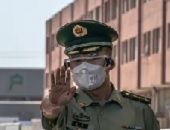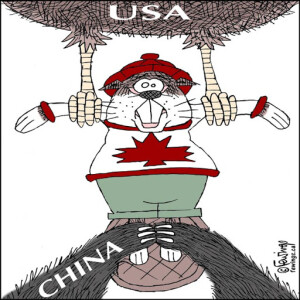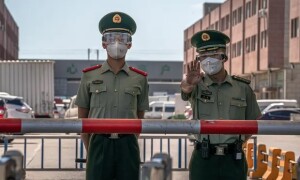From trade wars to 5G technology, issues in China are having an impact on the Canadian investment environment and capital flow decisions. What effect will China’s ascendance have on the global economy? What is the best strategy to ride the wave upward? What are potential danger areas?
On June 15, 2020, Herbert Zhang, the chair of the institutional asset management committee of the CFA Society Toronto, welcomed three panellists at the webinar titled, “New World Order: How China’s Rising Affects Investment Strategy.”
The panellists shared their thoughts on how investors should view US-China trade tensions and deal with the associated risks and opportunities. They were interviewed by Tanya Lai, Managing Director, Public Equities, of the Investment Management Company of Ontario (IMCO).
Barry McInerney, President and CEO, Mackenzie Investments, said the current pandemic has not dampened the enthusiasm of his firm for investment in China. “We are long-term players,” he stressed. His firm believes domestic wealth management linked to China will grow over the next few years.
“Chinese equities should be in everyone’s portfolio,” he said, because they have a low correlation with assets in Canada and the US. Recently Chinese financial investments have become even more accessible.
Lai pointed out there was a bifurcation in global response to the pandemic, with China going the lockdown route and the US staying largely “open for business.” She asked panellists: will handling of the pandemic be a tipping point in how the economies develop?
“The last two months of the pandemic have been unlike anything I have ever witnessed,” said John McCallum, Former Cabinet Minister and Canadian Ambassador to China, and Senior Strategic Advisor at McMillan LLP. “We must have a certain sense of humility in trying to predict the future.” The International Monetary Fund predicts gross domestic product (GDP) will decrease 6 to 7 percent in developed countries over the next year, whereas China expects modest growth of 3 to 4 percent. The following year, China is forecast to roar back to 10 percent growth.
However, McCallum warned, much depends on the “strength and deviousness” of the coronavirus. He marvelled at the difference in response: 79 new cases appearing in Beijing meant the Chinese mobilized 100,000 workers to fight the virus war. Meanwhile, 2,000 new cases appeared in Florida, and yet that state carried on its plans to be “open for business.” McCallum cautioned the US opening too quickly might not be sustainable.
Lai asked panellists if they thought there would be a decoupling of the two economies.
“There will be no substantive improvement in the relationship between the two countries before November 2020,” predicted Gordon Houlden, Director of the China Institute, and Professor at University of Alberta. Rhetoric on the presidential campaign trail will blame China for many woes. “China is the world’s largest trader.” He warned that “a sharp slide to decoupling should be avoided” because it would increase the risk of conflict.
Houlden noted that in the technology sector, Washington is focussed on security issues. The Chinese firm Huawei rose to prominence because American companies were discouraged from offshore technology innovation.
In the commodities sector, China needs Canadian commodities. The ongoing dispute over the detention of “the two Michaels” is linked to tariffs on pork and beef imports. “We hope to avoid sparring over political issues, but China is starting to lash out more.” ♠️
Click here to read Part 2 of the report on the New World Order webinar.
The Chinese lockdown photo is from The Guardian website. Click to view original article.
The cartoon is from the website fewings.ca.



